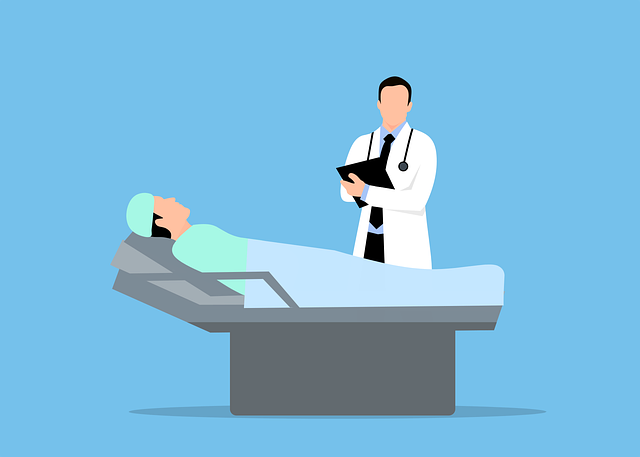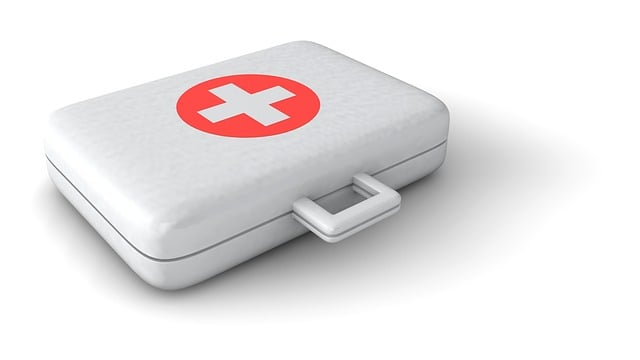In South Africa, both hospital plans and medical aid schemes are crucial for managing healthcare costs, especially for chronic conditions. Hospital plans, short-term insurance, offer comprehensive inpatient care with easy access and faster treatment, ideal for frequent hospital stays. Medical aid schemes, long-term benefits, cover broader services like outpatient care, specialist consultations, regular check-ups, medication, and lifestyle management programs, providing a network of healthcare professionals. Choosing between them depends on personal circumstances: hospital plans for flexibility and wide service coverage; medical aid for structured support, potentially lower costs, and chronic condition management programs.
In South Africa, managing chronic conditions requires either a hospital plan or medical aid scheme, each with its own set of benefits and drawbacks. This article dissects the pros and cons of these options, providing insights into which is better for long-term health. We explore how understanding hospital plans and medical aid schemes can empower individuals to make informed decisions about their healthcare, ensuring optimal chronic illness management.
From cost coverage to accessibility, discover what sets these options apart, guiding you towards the most suitable choice for your unique needs.
- Understanding Hospital Plans and Medical Aid Schemes in South Africa
- Pros of Having a Hospital Plan for Chronic Conditions
- Advantages of Medical Aid for Chronic Illness Management
- Cons and Challenges of Hospital Plans for Continuous Care
- Comparing: Which Is Better for Your Long-Term Health?
Understanding Hospital Plans and Medical Aid Schemes in South Africa

In South Africa, both hospital plans and medical aid schemes play pivotal roles in managing healthcare costs for residents living with chronic conditions. The key difference lies in their structure and benefits. Hospital plans are typically short-term insurance policies designed to cover the cost of inpatient care. They excel at providing comprehensive coverage for specific treatments, offering peace of mind when facing chronic health issues that may require frequent hospital stays. On the other hand, medical aid schemes are long-term benefits provided by employers or purchased privately, focusing on a broader range of healthcare services, including outpatient care and specialist consultations.
When deciding between a hospital plan and medical aid, individuals with chronic conditions should consider their specific healthcare needs. Medical aid schemes tend to offer more extensive benefits, including routine check-ups and preventive care, making them advantageous for ongoing management of chronic diseases. Hospital plans, however, excel in ensuring access to quality inpatient treatment when needed, without the often complex claims processes associated with medical aids. The choice ultimately depends on personal circumstances, healthcare requirements, and the level of coverage desired.
Pros of Having a Hospital Plan for Chronic Conditions

Having a hospital plan specifically tailored for chronic conditions offers several advantages for South African residents managing long-term health issues. Firstly, it provides financial protection and peace of mind by covering the often substantial costs associated with specialized treatments, regular check-ups, and medication. This is particularly beneficial as chronic conditions typically require ongoing medical care and management. By choosing a plan that suits their specific needs, individuals can ensure they receive the best possible treatment without worrying about overwhelming medical bills.
Additionally, these plans tend to offer faster access to healthcare services, including specialized hospitals and clinics. This is crucial for managing chronic conditions effectively, as timely treatment can prevent complications and improve overall health outcomes. When comparing hospital plans to traditional medical aid schemes, the former often prove more suitable for chronic care due to their focused approach and dedicated networks of healthcare providers specializing in these areas.
Advantages of Medical Aid for Chronic Illness Management

Medical Aid schemes and hospital plans both offer valuable support for managing chronic conditions in South Africa, but each has distinct advantages. For individuals with ongoing medical needs, Medical Aid provides significant benefits. It ensures access to a network of healthcare professionals and facilities, often covering a wide range of chronic illness treatments and therapies not fully covered by hospital plans. This includes specialist consultations, regular check-ups, medication, and certain lifestyle management programs tailored for specific conditions like diabetes or heart disease.
Compared to hospital plans, Medical Aid schemes may offer more comprehensive care coordination, with dedicated managers who can assist in navigating complex treatment paths. Additionally, many Medical Aid options include wellness incentives, encouraging members to maintain healthy habits, which can prevent chronic conditions from worsening. This holistic approach to healthcare management makes Medical Aid an attractive choice for those dealing with long-term health issues, offering both peace of mind and improved quality of life. When considering which is better between hospital plans and medical aid, the advantages of Medical Aid for chronic illness management are hard to overlook.
Cons and Challenges of Hospital Plans for Continuous Care

While hospital plans and medical aid schemes both offer crucial support for chronic conditions, there are distinct cons to consider for each. For continuous care, hospital plans often face several challenges. One significant issue is the potential for high costs, as these plans typically cover a wide range of services within hospitals, but these expenses can quickly add up, especially for prolonged treatments or complex procedures. This is where medical aid schemes might seem like a better option; they often have set monthly contributions that provide access to a network of healthcare providers.
However, the catch lies in the limitations and exclusions specified by each scheme. Some medical aids may not cover all chronic conditions or specific treatment options, leaving individuals with limited choices for their ongoing healthcare needs. Additionally, the approval process for certain procedures or treatments can be lengthy, causing delays in care. Comparatively, hospital plans might offer more flexibility and immediate access to a range of healthcare services without the need for extensive approvals.
Comparing: Which Is Better for Your Long-Term Health?

When considering which healthcare option is better for your long-term health, it’s crucial to understand the nuances between hospital plans and medical aid schemes, especially when managing chronic conditions. While both aim to provide financial protection and access to quality care, they operate differently. Hospital plans typically cover a wide range of services within private hospitals, with various network options available. This flexibility allows individuals to choose their preferred healthcare facilities. On the other hand, Medical Aid Schemes are not-for-profit organisations that offer a comprehensive package of benefits, including chronic condition management programs. These schemes often have specific rules and regulations regarding treatment approvals and provider networks.
The choice between them depends on individual needs and preferences. For instance, if you seek a broader range of healthcare choices and prefer the flexibility to visit any accredited hospital, a hospital plan might be advantageous. Conversely, Medical Aid could be more suitable if you want structured support for chronic conditions, with pre-approved treatment options and potentially lower out-of-pocket expenses for specialized care.
In South Africa, both hospital plans and medical aid schemes offer valuable support for managing chronic conditions, each with its own set of advantages and drawbacks. While hospital plans provide comprehensive coverage for specific treatments, medical aid schemes excel in long-term care and management through preventive measures and specialized services. Ultimately, the decision between a hospital plan or medical aid depends on individual needs, budget, and the level of care required for their chronic condition. Choosing the right option ensures better access to healthcare services and enhances one’s overall well-being in the long term.







